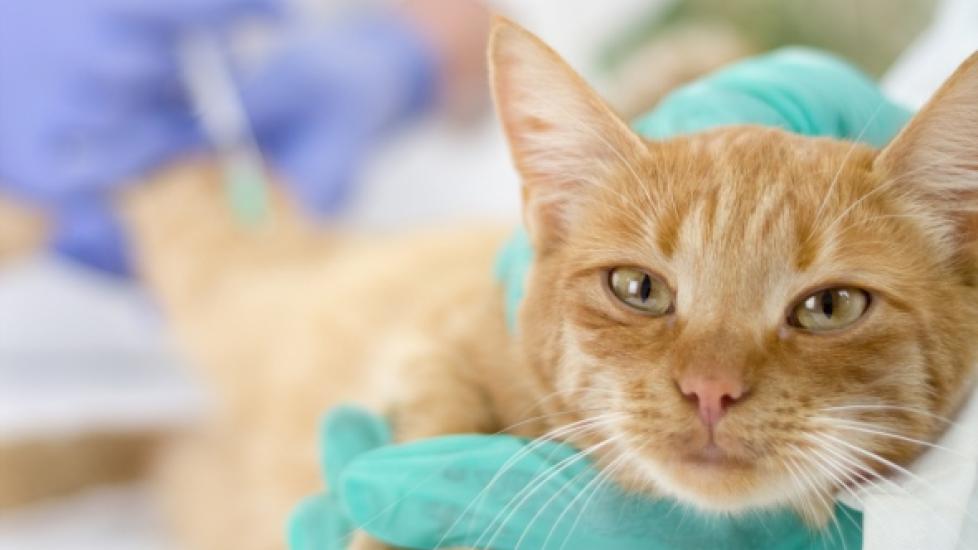Can You Over-Vaccinate Your Pet?
As an integrative practitioner, I always strive to take a judicious approach when it comes to vaccinations. I recommend and administer vaccines for my canine and feline patients to create a protective level of antibodies to confer immunity to potentially fatal and non-fatal diseases. Yet, I feel that many pets in the U.S. are over-vaccinated and often unnecessarily receive a vaccine simply because a manufacturer’s due date to provide a booster has come.
We veterinarians must heavily weigh our patients’ lifestyle, previous history of vaccination, and overall health status before simply giving a vaccine because “it is due.”
Industry Guidelines for Pet Vaccines
Industry guidelines exist to inform veterinarians about how to provide the most-appropriate vaccination strategies for their patients. The American Animal Hospital Association (AAHA) and World Small Animal Veterinary Association (WSAVA) have established a standard to give veterinarians and others who administer vaccinations (veterinary technicians, breeders, etc.) an understanding of the vaccinations that should be given at certain points in an animal’s life and at what intervals.
Core Vaccines for Dogs and Cats
Core vaccinations are those that are recommended for pets having no or an unknown vaccination history (puppies, kittens, pets entering the shelter system, etc.).
For dogs, core vaccines include:
- canine parvovirus (CPV)
- canine distemper virus (CDV)
- canine adenovirus (CAV)
- rabies
For cats, core vaccines include:
- feline herpesvirus type 1 (FHV-1)
- feline calicivirus (FCV)
- feline panleukopenia virus (FPV)
- rabies
The diseases to which these core vaccines create immunity to have a high likelihood of causing morbidity (illness) and mortality (death) and are widely dispersed throughout the U.S. Additionally, core vaccinations reliably create a protective level of immunity.
Optional Non-Core Vaccines for Dogs and Cats
Non-core vaccinations are those that are considered optional and should be administered pending our pets’ potential for exposure to the infectious organism based on their lifestyle and the disease’s geographic distribution. Additionally, non-core vaccinations are less reliable for producing a protective level of immunity as compared to core-vaccinations.
Non-core vaccinations for dogs include:
- canine parainfluenza virus (CPiV)
- canine influenza virus (CIV)
- Bordetella bronchiseptica (one causative agent of “kennel cough”)
- Leptospira spp. (causative agent of Leptospirosis or “Lepto”)
- Borrelia burgdorferi (causative agent of Lyme disease)
- Crotalus Atrox Toxoid (CAT, or rattlesnake vaccine)
Non-core vaccinations for cats include:
- feline leukemia virus (FeLV)
- feline immunodeficiency virus (FIV)
- virulent feline corona virus (FCV, causative agent of feline infectious periodontitis or FIP)
- Chlamydia felis
- Bordetella bronchiseptica (one causative agent of “kennel cough”)
Legally Required Vaccines for Pets
There are also state-mandated legal requirements for certain vaccinations, like rabies. As a zoonotic disease, rabies can transmit from animals to humans, which makes the need to vaccinate our pets a crucial public health practice to keep people free from exposure to this potentially fatal disease.
The Fallacy of Keeping Pets’ Vaccines ‘Up to Date’
Many owners bring their canine or feline companion to the veterinarian for fear of their pet getting sick if vaccinations are not kept “up to date.” Such fear can be real for some pets that have greater potential for exposure, such as dogs going to parks or daycare, cats going to boarding facilities, any animal coming into contact with other animals recently exiting the shelter system, etc.
Commonly, the owner consents to the pet being vaccinated because of the perception that doing so will improve the pet’s health. Meanwhile, insufficient effort is placed on resolving the actual disease that is present in the pet’s body. Often the pet receives its shots while existing ailments like periodontal disease and obesity, which negatively impact the immune system and other body systems, are overlooked or not sufficiently addressed.
Booster Vaccines and Titer Tests
Studies exist proving that the immunity for common pet vaccines can carry on for years longer than the recommended booster date. The ability of some vaccinations to provide immunity beyond the recommended booster interval is described in the 2011 AAHA Vaccination Guidelines for the General Practice Veterinarian.
Additionally, studies have shown that administering a vaccine booster for a disease against which a pet already has sufficient protective antibodies does not further enhance immunity. Giving more than one vaccination in one setting also potentially increases the likelihood of Vaccine Associated Adverse Events (VAAE). According to the American Veterinary Medical Association (AVMA) Vaccination Principles, “while there is evidence that some vaccines provide immunity beyond one year, revaccination of patients with sufficient immunity does not necessarily add to their disease protection and may increase the potential risk of post-vaccination adverse events.”
As a result, I recommend my clients seriously contemplate their pets’ need for booster vaccines and pursue a blood test called an antibody titer to determine their pets’ response to previous vaccinations when deemed appropriate.
Antibody titers do no harm to the patient beyond the mild discomfort created by drawing the blood sample. On the other hand, administering a vaccination may cause irreparable harm to any patient as the harmful potential is greater if the pet has previously experienced a VAAE, or if ailments like cancer, immune-mediated diseases (immune mediated hemolytic anemia [IMHA], immune mediated thrombocytopenia [IMTP], etc.), kidney and liver disorders, or others are present.
What approach do you take to your pet’s vaccination strategy? Feel free to share your perspective in the comment section.
